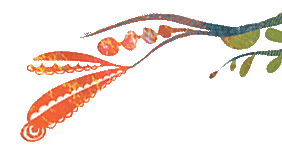Learning — and Unlearning — to Advance Equity
Strategic Learning, Research and Evaluation
By Chera Reid
Growing Our Knowledge Endowment
Established in 2015, Kresge’s Strategic Learning, Research and Evaluation practice was charged with growing our knowledge endowment by drawing from the full suite of philanthropic tools — including evaluation and thought leadership — to advance urban opportunity and to enliven our values. We have an enduring commitment to transparency and orienting our efforts toward greater ownership among our nonprofit partners and communities.
“We are asking who benefits and who pays. We aim to be always in service of mission and ultimately to advance the work of people on the front lines of social change,” says Anna Cruz, strategic learning and evaluation officer.
In our Environment Program, this takes shape by inviting multiple audiences to learn with us through the Climate Resilience and Urban Opportunity (CRUO) initiative. The initiative, which focused on deepening the climate change expertise of groups firmly grounded in equity, included a summative evaluation and a teaching case — both as written ways to return learning back to the system. The teaching case, invited by the Johnson Center for Philanthropy, was the first-ever about grantmaking with a racial equity lens. Demonstrating a willingness to be open about our successes and challenges creates an opportunity for philanthropic and social sector practitioners to learn deeply from the experience and to bring insights back to bear on their equity-minded efforts.
Learning — and Unlearning — Together
We match our evaluative approaches with the goals of our grantmaking strategies. We often need to learn — and unlearn — in real time so that we can act with the urgency that our strategies demand. Our commitment to learning and unlearning together comes to life with the Fresh, Local and Equitable initiative (FreshLo), a neighborhood-level change effort in 13 communities that is focused on advancing equity through the contributions of creative placemaking and food-oriented development. Together with evaluation partner Learning for Action and national program office Daisa Enterprises, the foundation focused on bringing equity principles in evaluation to life.
We had to slow down our thinking enough to see our assumptions about how we were framing the evaluation, what kinds of data we were privileging, and who would benefit. As part of its learning and unlearning process, Kresge hosted a national event with Grantmakers for Effective Organizations to consider what the FreshLo experience teaches about what it takes to advance equitable evaluation. Participants grappled with evaluation orthodoxies the team confronted and the hard decisions and challenges they experienced, and they reflected on what, in retrospect, the team could have done differently. The event included action planning with all participants naming their personal commitments to learning and unlearning.
Inviting Experts in Equal Measure
We believe in the power of convening and communities of practice to connect learning with action. For instance, as grantee partners described their aspirations, the FreshLo team listened closely and realized we needed to change our frame to reflect their ideals. We heard the expertise of those who hold the vision for their communities and centered a major part of the FreshLo evaluation on their feedback. With self-determination as a theme, we expanded the FreshLo evaluation plan to define success in more traditional economic terms.
In the words of Dr. Maria Rosario Jackson, senior adviser to the team, “There is an opportunity to lift up voices and the perspectives of people who have proximity and lived experience that historically have not been at the center of formal evaluation.”
Chera Reid, Ph.D., is The Kresge Foundation’s director of strategic learning, research and evaluation.
